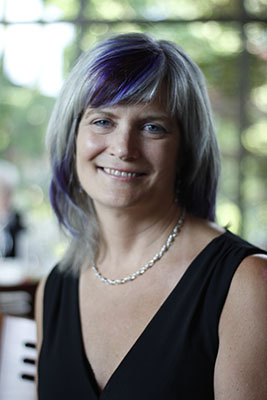Jesteś tutaj
Capturing California's Diversity Through Cord Blood Collections

The Umbilical Cord Blood Collection Program (UCBCP) is a California state program run by a small team of dedicated people at the University of California Davis Health System located in Sacramento. The UCBCP was created by a law passed in late 2010 that recognized the urgent need for Californians to donate cord blood for public use, to increase the number of units that are available for transplant and especially those that are racially and ethnically diverse. Many Californians and others worldwide are not able to find a match for a bone marrow donor or cord blood unit, because they are of mixed heritage. The only way to fix this problem is to make sure that the National Cord Blood Inventory has units collected from donors that also have unique genetics representing a diverse family background.
There had never been a statewide program to allow public donation of cord blood in California before, which meant that almost all cord blood was being thrown in the trash. Now California has the UCBCP, funded by a fee of $2 placed on birth certificates. With approximately half a million births per year, and as many more birth certificates purchased by residents who need a new copy, we have enough money to collect cord blood at several sites across the state, allowing mothers to donate at no cost to themselves or their families. Importantly, many families cannot afford the cost of private cord blood banking, and a free public banking option allows them a chance to preserve this precious resource regardless of their economic situation. If a donation of cord blood is made and the unit is banked, the family can access that cord blood unit as long as it has not already been used for a transplant patient.
To collect as many cord blood units as possible, we are focusing on the five most populated areas of the state:
- San Diego,
- Los Angeles,
- the Central Valley,
- the San Francisco Bay area, and
- Sacramento.
In San Diego and Los Angeles we are working with two California cord blood banks to increase the number of hospitals at which they will offer public cord blood donation and banking services. Currently mothers can donate cord blood at four hospitals in Southern California, and over the next several months that number is set to increase to over twenty hospitals. In Northern California and the Central Valley, we are working to set up new collection sites to serve areas that haven't been served before, like Sacramento. We were very excited to start pilot collections at UC Davis Health System in September, for the purposes of testing our equipment and procedures, and for training. We hope to be collecting at up to four hospitals in the Sacramento area by the end of the year. Sacramento is one of the most racially diverse cities in the nation, and we are proud to be on the cusp of helping to improve the availability of cord blood units to under-represented patients in need.
Soon, when a mother arrives to deliver her baby at one of our participating hospitals, she will be asked whether she would like to donate her baby's cord blood after the birth. She will be made aware that there is no risk to herself or her baby, and that her donation may save a life, or even many lives. This is because some cord blood units that are collected do not have enough cells to be used for a transplant, and in California, if the mother consents, units that cannot be banked will be sent to researchers working to find new and better ways to use cord blood to treat and cure diseases. In this way, no cord blood is wasted, and each one that is donated has the potential to be life-saving.


